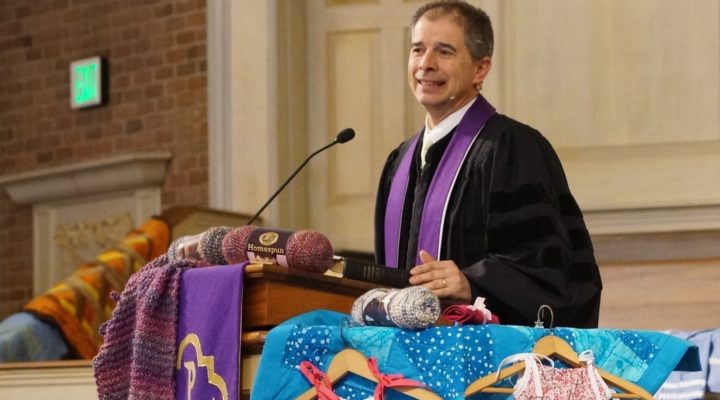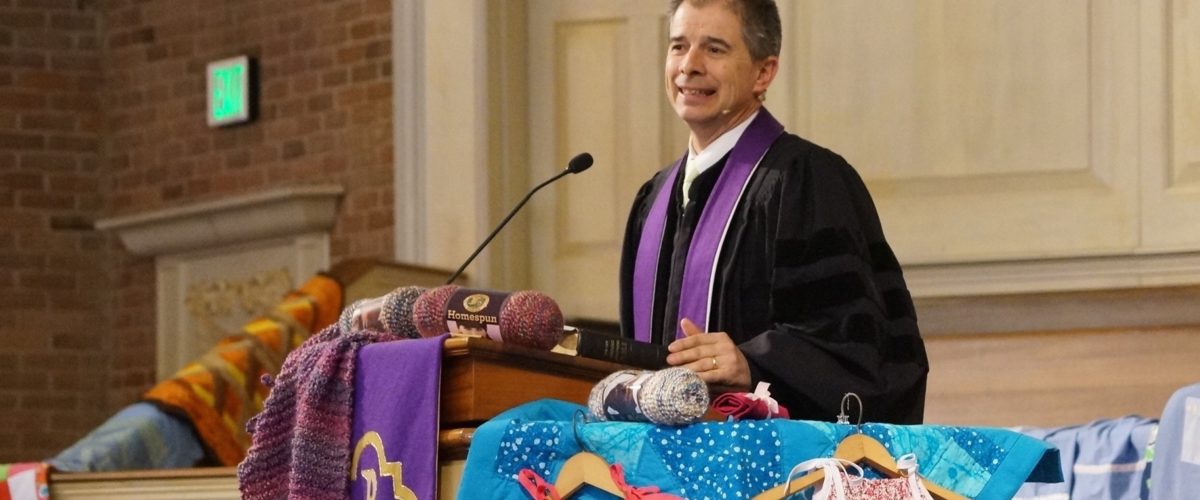The first time Bruce Holliday walked into Park Road Baptist Church in Charlotte, N.C., he carried doubts about just about anything having to do with institutional religion.
But he was stunned to find that co-pastors Russ and Amy Jacks Dean, and their congregation, not only welcomed his struggles with faith, but seemed to have their own questions, too.
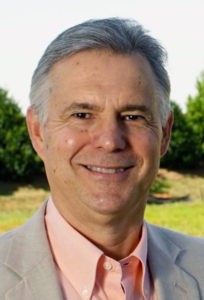
Bruce Holliday
“I was struck by how unlike that was from what I expected to see and hear in a church,” said Holliday, who has been with the church about eight years and now serves as its communications director. “Park Road is a great fit because they make room for questions and doubts about organized religion.”
‘Walking away in droves’
It turned out that Russ Dean, too, had spent years challenging many of the basic assumptions of his faith, a process he shares in his new book, Finding a New Way Home: The Unlikely Path of a Reluctant Baptist Renegade.
In it, Dean presents the undulating, surprise-filled spiritual path that led him from his Southern Baptist roots to the pulpit of a progressive congregation with ties to the Alliance of Baptists and the Cooperative Baptist Fellowship.
“I want people to know that faith is and ought to be a journey and that it’s OK to go away from where you started,” he said. “Sometimes our life experiences and questions take us away from the Sunday school answers we were given as third graders. Faith ought to be a bit of a struggle, and there ought to be some challenges. We need to learn that God is big enough for any of the questions we can ask.”
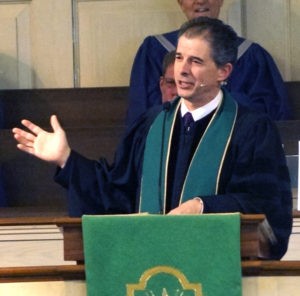
Russ Dean
Dean said his book is an effort to convey the message that churches must become places where members and visitors feel safe challenging even the most revered biblical teachings, or else face the continued mass exodus plaguing organized Christianity. “People are walking away in droves because the church will not allow the questions that they are wrestling with,” he said.
The COVID-19 pandemic has provided churches additional challenges and opportunities to connect people with a God capable of handling their questions, he added. “This past year has been very difficult for the church, but I think people will go to church more if they can find places where they can be honest about their faith and their doubts.”
‘A deeper reality’
Dean delves into the history of his faith-challenging ideas in the book, and no less so than in a chapter titled “A New Religion: Everything That’s True About Christianity is a Myth.”
“Everything that is true about Christianity is a myth — because the stories of our Scripture, the convictions of our faith, the movements of Spirit have never been about fact,” Dean writes in the chapter.
Questioned about that statement, Dean said he has come to see that it is not enough just to believe in the historical data of accounts such as the Resurrection or Christ walking on water.
“To me, what’s more important than the historicity of these teachings is their truth,” he said. “Everything that is true about my faith today is more than fact. I don’t want a faith built on facts. That would just make it science for me. We are talking about a deeper reality.”
“Everything that is true about my faith today is more than fact. I don’t want a faith built on facts.”
And the word “myth” in the title does not denote a fabricated story, as it is commonly used. “A myth is a story that is truer than fact, that is deeper than fact and is not dependent on fact,” he explained.
‘Just trying to be faithful’
The spiritual courage to consider such matters was instilled in Dean by his parents, he said. “Our family could have been the poster family for the Southern Baptist Convention and everything that was good about it in the good old days.”
His father, an SBC preacher, and seminary-educated mother imbued him with a passion for faith that never has left him. “I am grateful to my parents for grounding me in such faith so that as I walk along asking different questions, I never have been tempted to leave faith or church behind.”
On the contrary, Dean said, it was his initial goal to follow in his father’s footsteps that launched him on the journey that brought him to Park Road Baptist. And it was there that he has worked out his theology, often from the pulpit, during the past two decades.
“I believe almost everything my parents taught me growing up — I just believe it very differently.”
“I feel like I never have to hold back, and people have been willing to affirm or tolerate that,” he said. “I am still feeling the exhilaration of being at a church where I can be free to bring up issues and preach the way I want to preach.”
Dean said he wants others to feel the same way about their churches, including clergy who all too often must suppress their own spiritual concerns to retain their positions.
The vital point is that it isn’t unfaithful to question faith, he said. “The message of my story is I have had this journey and it’s been fascinating and challenging, and it has deepened my faith and my spirituality. And I believe almost everything my parents taught me growing up — I just believe it very differently. I still have a heartfelt response to Jesus and God, and I believe we can take these journeys and not have to leave church.”
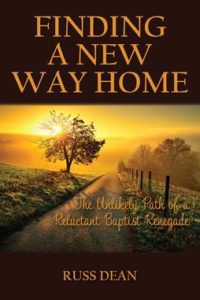 That’s a message he’s hoping to spread with the book, through sermons and a podcast. “I am a cheerleader for church with an increased calling for those who have left the church because of the church. And I have come to believe we have to be big enough to deal with people’s questions or the church won’t survive.”
That’s a message he’s hoping to spread with the book, through sermons and a podcast. “I am a cheerleader for church with an increased calling for those who have left the church because of the church. And I have come to believe we have to be big enough to deal with people’s questions or the church won’t survive.”
The seed for the book was planted 15 years ago when he was invited to speak at an Episcopal church. “The priest said to me, ‘Russ, you are not what people think of when they hear the word Baptist.’”
Dean said this wasn’t his original concept of a Baptist preacher, either. “I think the subtitle of the book says it all for me: The Unlikely Path of a Reluctant Baptist Renegade. I didn’t seek this path. I didn’t seek to be a radical or a liberal or a renegade. I was just trying to be faithful. These experiences just came to me.”
Related articles:

